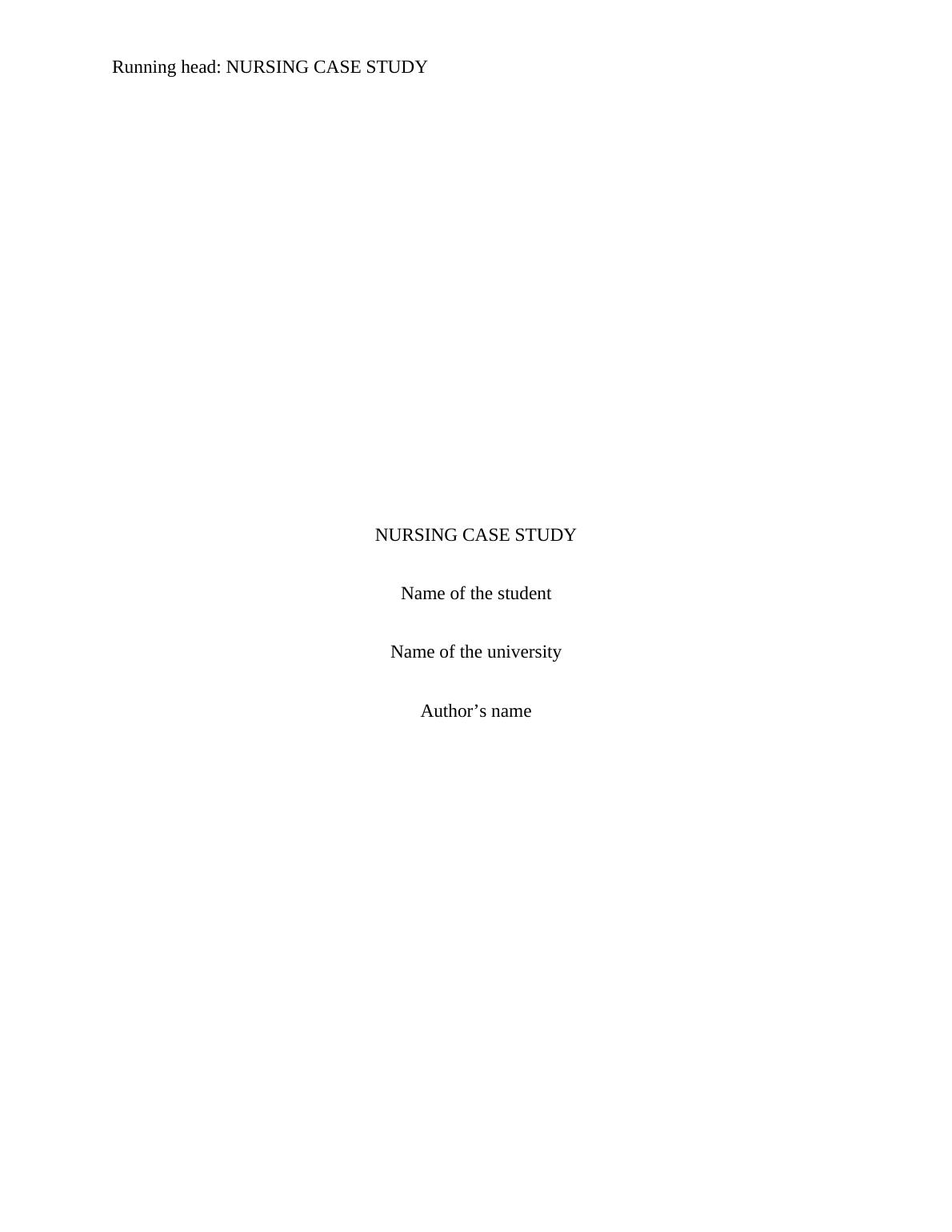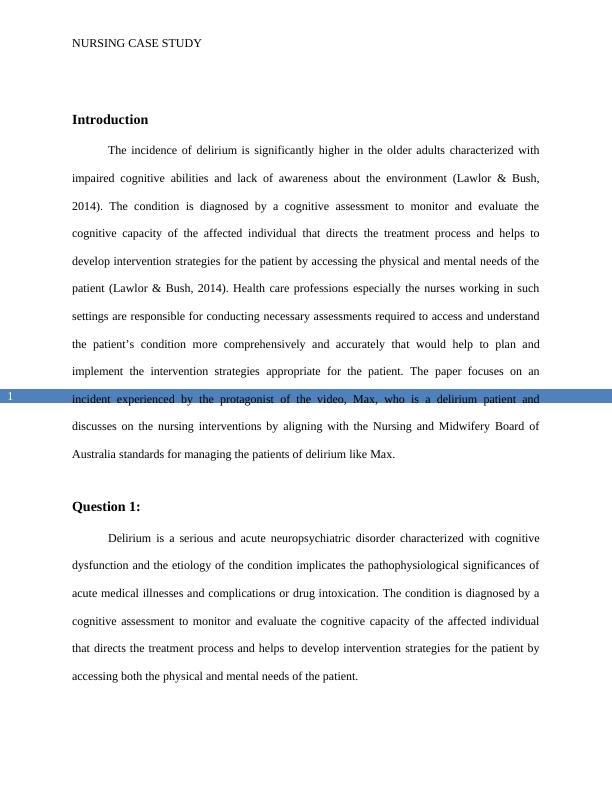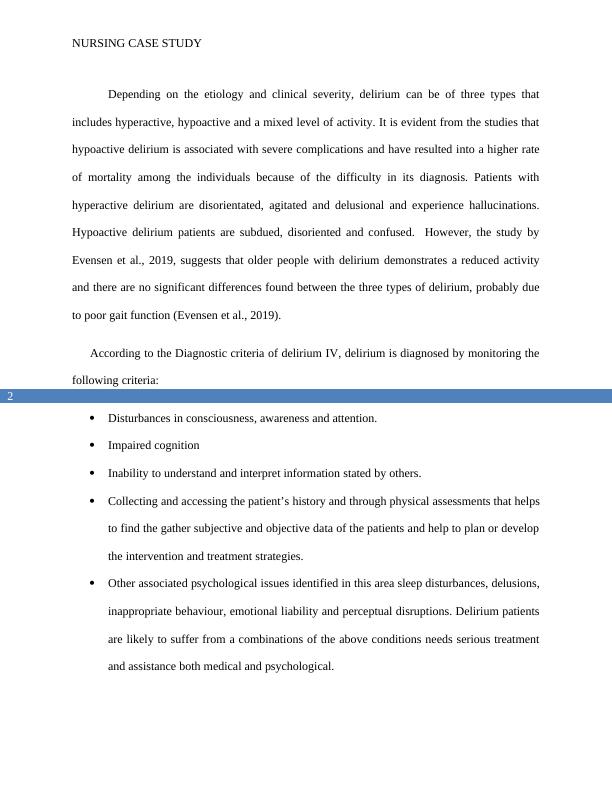Nursing Case Study: Delirium, Pain Management and Strength-Based Approach
10 Pages2621 Words345 Views
Added on 2022-11-09
About This Document
This nursing case study discusses the diagnosis, assessment tools, nursing interventions, and strength-based approach for patients with delirium and pain. It also highlights the importance of adhering to the Nursing and Midwifery Board of Australia standards for managing patients.
Nursing Case Study: Delirium, Pain Management and Strength-Based Approach
Added on 2022-11-09
ShareRelated Documents
End of preview
Want to access all the pages? Upload your documents or become a member.
Healthcare Practice Improvement Assignment
|19
|5447
|33
Life Stage Consideration Essay 2022
|11
|2725
|17
LIFE STAGE CONSIDERATION LIFE
|9
|2450
|3
Research Proposal on Delirium
|14
|4004
|319
Contexts of Practice: The Older Person and Family
|8
|2283
|152
Prospective epidemiological research studies
|16
|2984
|20



